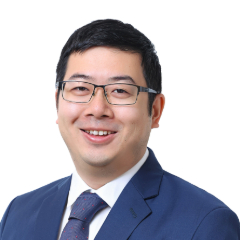
Introduction to Moving to Singapore as an Expatriate
Singapore is a top destination for affluent and highly skilled expatriates due to its strong economy, low taxes (progressive income tax capped at 24%), political stability, and high quality of life. Due to its thriving economy and strategic business positioning, it has become increasingly attractive for expatriates and their families. However, navigating Singapore Law regarding employment passes and laws and permanent residency may be unfamiliar territory for expatriates. Hence, this article offers insight on the key legal and tax considerations for expatriates when moving to Singapore.
Key Work Pass and Immigration Requirements
To work in Singapore as an expatriate, an expatriate must obtain the appropriate work pass based on their job role, qualifications, and salary level. Applications for such work passes are processed through Singapore’s Ministry of Manpower (MOM) and are considered with reference to the eligibility criteria.
Employment Pass (EP)
The primary work pass type is the Employment Pass (EP), which is meant for Professionals, Managers and Executives (PMEs). An employer or appointed employment agent is required to apply on behalf of the expatriate. To be eligible for the EP, an expatriate must have a fixed monthly salary comparable to a top one-third of Singapore’s PMET salaries, starting from SGD 5,600, to SGD 10,700 for those aged 45 and above. It should be noted that candidates within the financial sector require higher salaries to qualify. The duration of the pass is up to 2 years for first-time EP holders, but up to 3 years for renewals.
Entrepreneur Pass (EntrePass)
The EntrePass is eligible for foreign entrepreneurs to start a new business in Singapore, that is venture-backed or possess innovative technology. The expatriate candidate can apply directly for the EntrePass and there is no stipulated minimum salary. The duration of a new or first renewal of the EntrePass is up to 1 year, with subsequent renewals of up to 2 years.
Eligibility for the EntrePass is issued to foreign entrepreneurs who set up a new business in Singapore under a private limited company (Companies Act). Furthermore, the EntrePass holder is to only engage in the specified business activity. MOM is to be notified of any detail changes, like address or contact; the pass is to be cancelled within 7 days if the business ceases operations.
Personalised Employment Pass (PEP)
The PEP would be applicable for EP holders or overseas foreign professionals who earn a fixed monthly salary of at least SGD 22,500. There is no restriction on which sectors the PEP holder can work in and there is no requirement to reapply for a pass if the PEP holder changes jobs.
Overseas Networks and Expertise (ONE) Pass
The ONE Pass would be applicable for expats who are top talent in the fields of business, arts and culture, sports, academia, and research, and who either have earned a fixed monthly salary of at least SGD 30,000 for the 12 months leading up to the application date, or will earn a fixed monthly salary of at least SGD 30,000 under the future employer in Singapore. ONE Pass holders may work for multiple companies at any one time, subject to compliance with the terms of the employment contracts, and there will no need to reapply for a pass when changing jobs.
Global Investor Programme (GIP)
Expatriates may also consider applying for the Global Investor Programme (GIP), which grants Permanent Residency (PR) status to eligible expatriates and foreign investors who wish to commit to substantial investments in Singapore. Administered by the Economic Development Board, it requires compliance with the following financial and business regulations and requirements.
To be eligible for the GIP, expatriates must meet certain qualification criteria either as established business owners, next generation business owners, founders or fast growth companies, or family office principals. Furthermore, GIP applicants may consider the following investment options:
- Invest at least SGD 10 million in a new business entity or in the expansion of an existing business operation in Singapore.
- Invest at least SGD 25 million in a GIP-select fund investing in Singapore-based companies.
- Establish a Single Family Office in Singapore with an Assets Under Management (AUM) of SGD 200 million and transfer SGD 50 million to Singapore for deployment in specified categories.
The approval process includes an interview and assessment, followed by the issuance of an Approval-in-Principle (AIP) letter that is valid for 6 months. The applicant must then fulfil the investment condition within the abovementioned 6 months period and after the submission and verification of the investment documents by EDB, ICA will issue the Final Approval letter.
Long-Term Visit Pass for Family Members of Expatriates (LTVP)
Family members of certain eligible EP or S Pass holders may consider the Long-Term Visit Pass (LTVP), which is issued to foreigners who wish to stay in Singapore for an extended period of time, longer than 30 days. The LTVP is meant for a common-law spouse, unmarried step-child under 21 years old or unmarried handicapped child aged 21 and above of the main pass holder. For main pass holders who earn over SGD 12,000, they are eligible for getting a LTVP for their parents. Holders of LTVPs issued by MOM will need to hold the relevant work pass in order to work in Singapore.
Permanent Residence (PR) Options for Expatriates
Expatriates can apply for PR under certain categories such as family ties, Employment Pass for at least six months, investors, the Global Investor Programme (GIP). Applications are submitted online via the Immigration and Checkpoints Authority (ICA) e-PR system, requiring approximately six months to process.
Through PR, expatriates moving to Singapore can live and work indefinitely without renewals, access to public services like healthcare and education, as well as an eventual pathway to citizenship after integration. However, the PR’s Re-Entry Permit, which allows a PR to retain his/her PR status while away from Singapore, will have to be renewed.
Employment Law Considerations for Expatriates
In Singapore, the MOM and the Tripartite Alliance for Fair & Progressive Employment Practices (TAFEP) enforce fairness in employment and hiring. The key employment laws that affect expatriates include the Employment Act 1968 and the Employment of Foreign Manpower Act 1990. The employment laws cover salary, working hours, leave entitlements and termination contract conditions, repatriation costs by the employer.
Furthermore, employment law applies to employment contracts and restrictive covenants such as non-competition and non-solicitation clauses, whereby Singapore courts enforce only reasonable clauses, balancing business interests and individuals’ rights. Regardless, expats should carefully review post-employment restrictions and also negotiate fair severance packages.
Employment laws are supplemented by Tripartite guidelines which can be enforced by MOM, while Tripartite advisories set out progressive workplace practices.
Singapore Tax System
Although Singapore’s tax system is simpler than other developed countries, there are still nuances that can catch employers and individuals out.
Singapore predominantly taxes income of an individual on a territorial basis. Income tax in Singapore is charged only on income of any person accruing in or derived from Singapore or received in Singapore from outside Singapore (with certain exemptions).
Many expatriates would also be happy to know that the following income would generally not be taxable:
- Overseas income received in Singapore (unless it is received through a partnership or where the overseas employment is incidental to the Singapore employment)
- Capital gains
- Interest received from approved banks or licensed finance companies in Singapore
- Dividend income from Singapore resident companies or foreign dividends received in Singapore
Singapore does not have a tax withholding requirement imposed on employers, so employees are responsible for filing their own tax returns and paying the tax due after assessment by the Inland Revenue Authority of Singapore (IRAS). The exception is when tax clearance is triggered, and employers must withhold all monies due to the employee from the date they are aware of the cessation of employment or departure from Singapore.
Tax Residency Status
A foreigner’s individual tax residency status in Singapore is generally based on the duration of physical presence in Singapore.
- Individuals who stay or work in Singapore for 183 days or more in a calendar year are considered tax residents.
- Those who stay for less than 183 days in a calendar year will be regarded as non-residents in Singapore for tax purposes.
This said, there are administrative concessions where individuals who spend less than 183 days in a calendar year can be regarded as tax residents if their employment in Singapore straddles two years and their employment plus physical presence immediately before/after employment covers a continual period of at least 183 days, or they stay/work in Singapore continuously for at least three consecutive calendar years.
Tax Rates and Filing Obligations
It is important to note that whether an individual is a tax resident of Singapore does not generally affect the type of income being subject to tax. What residency affects is the tax rate that would be applied.
Tax residents are subject to progressive tax rates - ranging from 0% to 24% and tax residents can claim tax reliefs to minimise their tax liabilities. For non-residents, their employment income would be taxed at the higher of a flat rate of 15% (without tax reliefs) or at the progressive tax rates. The tax rate applied for other types of income is generally at 24%.
The due date to file the annual income tax return is 18 April and this can be extended to 30 June if you are supported by a tax agent in Singapore.
Singapore does not have a self-assessment regime so income tax is payable after the return is assessed and a Notice of Assessment (i.e. tax bill) is issued to the taxpayer. Payment is due within 30 days from the date of the Notice of Assessment and there are various payment methods including an interest-free monthly instalment method. If the taxpayer does not agree with the assessment, an objection has to be lodged within 30 days from the date of the Notice of Assessment.
When a non-Singapore citizen ceases employment or will depart Singapore for an extended period of time, a tax clearance return (i.e. Form IR21) would need to be filed by the employer with the aim that taxes are settled before the individual ceases employment or leaves Singapore. There are certain exemptions available, and it is important to seek advice whether one can qualify for the exemption.
Where equity compensation is involved, the tax position can become more complicated as Singapore applies different rules to other countries. One example of this is the position at tax clearance and the application of deemed exercise rule where individuals can pay tax on their equity before it vests or before they legally obtain the underlying shares. It is therefore important to get the formal advice on how equity compensation should be reported in Singapore – this impacts anyone who is participating in equity schemes, as well as any employer operating one.
Central Provident Fund (CPF) – Singapore social security
Foreigners working in Singapore are not required to contribute to the CPF unless they become Singapore PR.
CPF rates vary depending on the age and immigration status of an employee. PR in the first and second years of PR are subject to lower contribution rates unless they opt into the full contribution rates with their employer.










